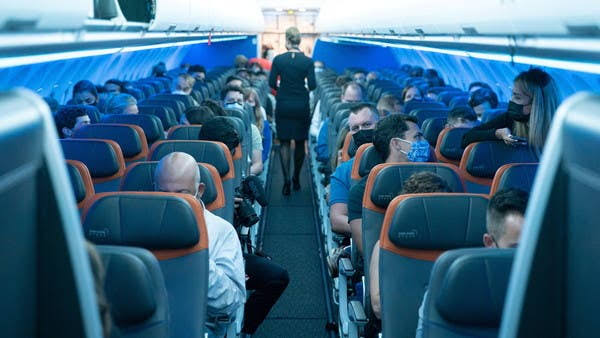By Oyintari Ben
The US Centre for Disease Control and Prevention is considering collecting wastewater taken from foreign aircraft to look for any new strains as COVID-19 illnesses rise in China.
Three infectious disease specialists told News Agencies that such a policy would be preferable to new travel restrictions announced this week by the US and other countries, which require obligatory negative COVID tests for visitors from China, in terms of tracking the virus and slowing its entry into the country.
The voluntary genomic sequencing program at airports in the US was also expanded this week with the inclusion of Seattle and Los Angeles. This extends the total number of airports collecting data from positive tests to seven.
However, experts cautioned that it might not give a representative sample size.
Given China’s lack of data transparency, testing aircraft wastewater might be a preferable option, according to Dr. Eric Topol, a genomics expert and head of the Scripps Research Translational Institute in La Jolla, California. This would provide a clearer picture of how the virus is changing.
Topol stated that removing wastewater from Chinese planes “would be a very excellent technique” and that it’s critical that the US improve its surveillance methods “since China is so unwilling to share its genomic data.”
In July, French researchers revealed that experiments on airline wastewater revealed that mandating negative COVID testing prior to international flights does not shield nations from the transmission of new variants. Despite the fact that passengers were obliged to do COVID tests prior to boarding, they discovered the Omicron variant in wastewater from two commercial aircraft that had flown from Ethiopia to France in December 2021.
Alpha, Delta, Epsilon, and Omicron variations were found in San Diego municipal wastewater samples up to 14 days before they appeared on nose swabs, according to study from California published in July.




































